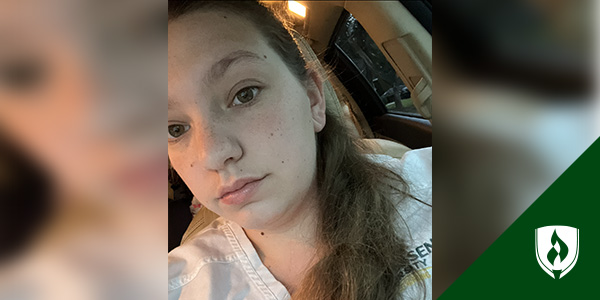
You’ve always wanted to work in the medical field—of that much you’re certain. Being a caretaker comes naturally to you, and it’d be great to have a job where you feel like you’re making a difference in the world. Because of this, pursuing a career in nursing has remained high on your potential plans. But with so many different types of nurses and educational paths to choose from, there’s a lot of information you’ll need to sort out.
For one, is becoming a licensed practical nursing (LPN) worth it? This path into nursing can certainly be an appealing option for those looking to quickly get started in the field, but it’s understandable if you have reservations. For whatever reason, people seem to make some strong negative assumptions about the role which don’t always hit the mark.
We’re here to set the record straight and address some of the common assumptions, half-truths and misconceptions that may be holding you back from pursuing an LPN career. But before we do that, let’s take a quick look at the role of an LPN nurse.
Get Your Nursing School Questions Answered at a Nursing Information Session
What is an LPN, exactly?
Licensed practical nurses (sometimes referred to as licensed vocational nurses) are healthcare professionals who provide care for patients. Before being licensed to practice, they must complete specialized nursing training and pass the NCLEX-PN exam.
The range of specific activities and treatments an LPN may perform in their daily work will vary somewhat depending on the state in which they practice. That said, the Bureau of Labor Statistics (BLS) identifies several common duties of an LPN:1
- Monitoring basic patient health such as vital signs and overall condition
- Administering basic patient care (i.e., changing bandages, inserting catheters)
- Providing personal care, such as helping with bathing and toileting
- Gathering patient health histories and maintaining documentation
- Assisting with tests or procedures as directed by RNs or physicians
- Consulting with RNs and physicians on care plans
As you can see from the list above, an LPN role involves quite a bit of hands-on patient care with plenty of direct interaction with both patients and other members of a care team. Read more about "What is an LPN Degree?" in our other article here.
4 Misconceptions you may have about LPN nurses
Before eliminating the option of becoming an LPN, let us help you clear up any confusion that may be keeping you from considering this nursing career path.
1. They really just want to be RNs
While an LPN career is a great way to get started on your dream to become an RN if that's your ultimate goal, not all licensed practical nurses view it as simply a stepping stone. For individuals who just want an opportunity to help others while supporting their family, it’s a relatively fast track to a fulfilling career.
In fact, the Practical Nursing program at Rasmussen University can be completed in as few as 12 months.2
2. LPN job opportunities are drying up
You may have heard claims that the healthcare industry is beginning to phase out LPN nursing positions, or that it might be harder to find an LPN job nowadays. That’s a bold claim—and it doesn’t appear to hold up.
The BLS projects employment of LPNs to increase by 11 percent from 2018 to 2028, a rate that translates to roughly 78,000 additional LPNs during that time period.1 Like with many healthcare occupations, the BLS attributes this increase in demand to the aging Baby Boomer generation—the combination of healthcare professionals retiring and the generation at-large reaching an age that typically requires additional medical care are both positive forces for LPN job demand.1
It’s true that LPN employment has decreased in the hospital setting, but there are still plenty of opportunities elsewhere. The BLS reports that in 2018, most LPN nurses (38 percent) were working in nursing and residential care facilities—but still a sizable percentage also find work in physicians’ offices (12 percent) and hospitals (15 percent).1
3. An LPN is not a “real” nurse
While they have different titles, it’s important to recognize that both RNs and LPNs fall under the umbrella of nursing. It’s true that there are differences in the overall scope of practice for RNs and LPNs depending on the state you work in—for example, LPNs in some states may have limitations on what they can independently do with intravenous patient treatments—but that doesn’t discount the overall body of work and their responsibilities. As you learned above, LPN nurses cover a lot of ground and flex their practical nursing knowledge on a regular basis.
From taking vitals and recording medical histories to inserting catheters and collecting specimens, it’s clear that LPNs are more than just assistants in the exam rooms. Setting aside the finer points of state regulations, Nick Angelis, CRNA and author, says he likes to focus more on the individual than the initials after their name.
“Over time, the experience bucket fills and the knowledge bucket needed to pass boards empties,” Angelis explains. “You will find some unprepared LPNs, but the same goes for RNs—whether ADN or BSN—as well as NPs and other specialties.”
Health professionals earn their respect by being excellent at their jobs—no matter their scope of practice. The bottom line is that LPNs are most definitely “real” nurses who play a key role in patient treatment.
4. There’s no path for professional growth
If you’re just skimming through LPN job listings, you’re likely to notice what appears to be a lot of the same thing for job titles—“licensed practical nurse.” But that doesn’t mean this nursing role is a dead end with no room for advancement. Like with many roles, there’s the ability to grow with experience and seniority. Additionally, LPNs have the option to pursue post-licensure certifications in areas like pharmacology, long-term care and intravenous therapy.
Beyond that, expanding your scope of practice via additional nursing education is a very common move. For example, if you are already working as an LPN, an LPN-to-RN bridge entrance option can be completed in as few as 18 months at Rasmussen University.2,3 When you consider your existing nursing experience plus the familiarity with college-level coursework you’ve developed on the way to becoming an LPN, this transition may feel a lot less intimidating.
Looking to start your LPN career?
Becoming an LPN nurse is a great option to get your foot in the door of the growing healthcare industry. What’s more is that you’ll be making a living doing what you love—caring for others. Don’t let others convince you that an LPN career is “less than” other medical careers. It’s a fantastic option for those looking to enter the nursing field in a fast and flexible manner.
Are you convinced this is the nursing career path for you? Learn how you can get started in our article, “How to Become an LPN: 5 Steps to Earning Your Scrubs.”
Related Articles:
- LPN vs. CNA: Comparing Potential First Steps into the Nursing Field
- What Is a Practical Nurse? Understanding the Important Work of LPNs
1Bureau of Labor Statistics, U.S. Department of Labor, Occupational Outlook Handbook, [accessed May, 2020]. Information represents national, averaged data for the occupations listed and includes workers at all levels of education and experience. Employment conditions in your area may vary.
2Time to completion is dependent on the number of transfer credits accepted and the number of courses completed each term.
3The LPN to RN Bridge is also referred to as the Professional Nursing Mobility Bridge Entrance Option.
EDITOR'S NOTE: This article was originally published in July 2014. It has since been updated to include information relevant to 2020.




